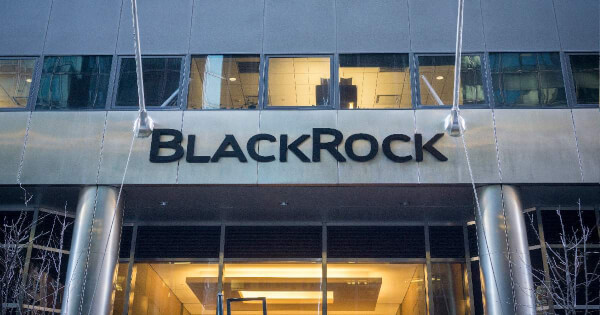BlackRock iShares Bitcoin Trust (IBIT) Sees Zero Inflows, Ending 71-Day Streak
Rebeca Moen Apr 25, 2024 16:07
BlackRock's iShares Bitcoin Trust (IBIT) has experienced a significant shift in investor sentiment, with zero inflows recorded for the first time since the introduction of Bitcoin ETFs in the US. This marks the end of a 71-day streak during which the ETF consistently attracted millions of dollars in daily investments. While other Bitcoin ETFs also experienced a slowdown in inflows, Fidelity Wise Origin Bitcoin Fund and ARK 21Shares Bitcoin ETF managed to secure inflows of $5.6 million and $4.2 million respectively.

The iShares Bitcoin Trust (IBIT) managed by BlackRock has achieved a significant milestone by seeing zero inflows for the very first time since the debut of Bitcoin exchange-traded funds (ETFs) in the United States. After a stretch of 71 days, during which the exchange-traded fund (ETF) regularly received considerable investments on a daily basis, this signals the end of that trend.
The inflows of Bitcoin exchange-traded funds (ETFs) are slowing down.
Other Bitcoin exchange-traded funds (ETFs) have also seen a decrease in investor interest, which coincides with the cessation of inflows associated with IBIT. Both the Fidelity Wise Origin Bitcoin Fund (FBTC) and the ARK 21Shares Bitcoin ETF (ARKB) were successful in attracting inflows of $5.6 million and $4.2 million, respectively . However, with the exception of these two funds, the majority of Bitcoin exchange-traded funds (ETFs) had no daily inflows.
Exceptional performance on the part of IBIT
Since it was first introduced in January, IBIT has shown exceptional performance, despite the current downturn in its operations. A total of roughly $15.5 billion in assets under management was amassed by the exchange-traded fund (ETF) in only 71 days. IBIT was able to exceed the U.S. Global Jets ETF as a result of this accomplishment, which put it among the top 10 exchange-traded funds (ETFs) with the longest streaks of daily inflows.
ETF Inflows and Their Influencing Factors
There are a number of reasons that may be ascribed to the current slowdown in the inflows of ETFs. The drop in inflows has been attributed to macro causes such as rising Treasury rates and geopolitical events in the Middle East, as stated in a research that was published by the United Kingdom-based bank Standard Chartered It is possible that the first wave of ETF purchases has hit its peak, and the subsequent wave of inflows may be contingent on the incorporation of spot Bitcoin ETFs into larger macro funds.
The revenue generated by Grayscale's GBTC
Grayscale's GBTC, which is one of the most renowned investment vehicles for Bitcoin, has been facing regular daily outflows that have been occurring. The majority of Bitcoin exchange-traded funds (ETFs) had no net inflows on the day when GBTC registered net withdrawals of $130.4 million. The outflows have prompted Grayscale to make preparations for the introduction of a new "mini Bitcoin ETF" that will have reduced costs in order to compete with other companies and attract a greater number of investors.
Prospects for Bitcoin Exchange-Traded Funds
Despite the fact that inflows have been decreasing as of late, there are indicators that interest in Bitcoin exchange-traded funds (ETFs) may once again increase. According to reports, Morgan Stanley is contemplating the possibility of allowing its 15,000 brokers to promote Bitcoin exchange-traded funds (ETFs) to their clients, which might result in more money being deposited into the funds. As an additional point of interest, the bank's prior forecast that Bitcoin would hit $150,000 by the end of the year is still accurate.
Image source: Shutterstock
.jpg)